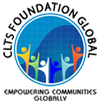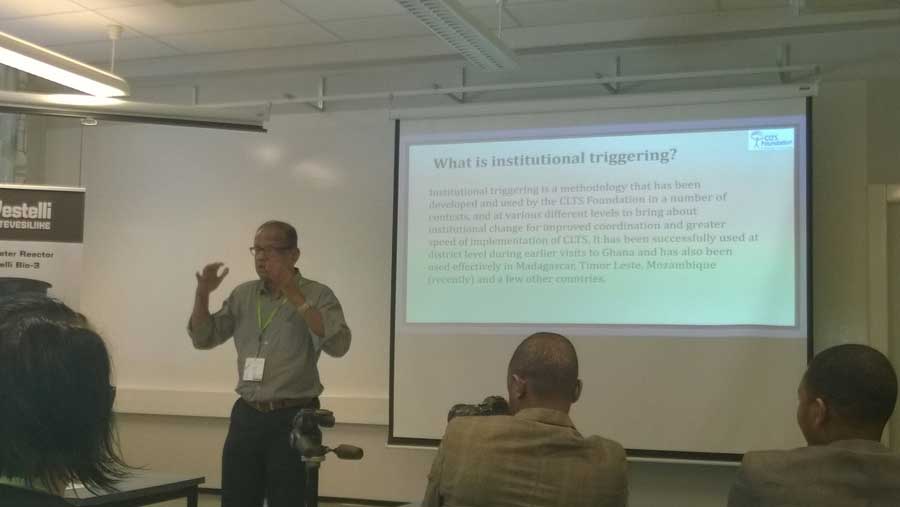
The Global Dry Toilet Association of Finland organizes an International Dry Toilet Conference every three years in Tampere, Finland. The 5th conference took place at the Tampere University of Applied Sciences from 19th to 22nd of August 2015. The theme was Dry Toilet Conference 2015 – Solutions.
Dr Kamal Kar, Chairman, CLTS Foundation Global a member of the Scientific Selection Committee of 2015 conference was invited to speak at the conference. The conference was a high-quality platform for all actors working with ecological sanitation to network and share their ideas and experiences on dry toilet technology, nutrient recycling and ecological sanitation.
We, at CLTS Foundation Global feel that Community-led Total Sanitation (CLTS) would be a powerful vehicle upon which the communities could be offered technological options such as the adoption of dry toilets. Through CLTS, the collective consciousness of the communities is ignited, not only to spontaneously stop open defecation and find solutions to safely confine their excreta, but also to adopt safe means of disposing off their excreta. When the communities start experiencing tangible benefits of living in an open defecation free environment in terms of better health, more productivity, enhanced incomes etc. keeping their surroundings clean becomes a general practice and a social norm. This is a community which is then ready to be mobilised to protect and manage their natural resources more consciously and responsibly. An empowered community motivated to enhance their well-being instinctively understands the need to be environmentally conscious. They are ready to be made aware that when shit is left out in the open, it can drain one’s health and resources, even kill them; but if handled properly and used productively it can enrich the soil, increase crop productivity and enhance their livelihoods and incomes. An ODF community therefore can be mobilised and empowered to adopt technologies like the dry toilet that will enable the management and use of excreta more productively.
Generally, when communities become ODF they put up a board declaring that their communities are ODF. We have had examples of ODF communities putting up messages on the boards saying “Every child in this village goes to school”. In this case, the communities could put up a board saying “This is a village where we do not waste our urine/shit”. This can be very empowering in itself.
Date: August 26, 2015




Leave A Comment